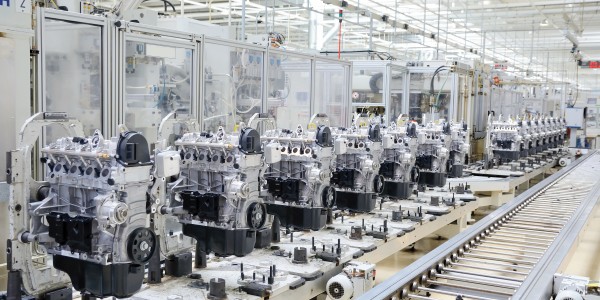A recent study from the National Bureau of Economic Research provides data for what many people have been saying for a long time. According to the research, hundreds of thousands of American jobs have disappeared specifically because of industrial automation.
Automation’s impact on American employment is distinct from offshoring and importing
The number of manufacturing jobs available to American workers has been declining since the 1980s. While employment in manufacturing has been growing slightly in recent years, it’s still well below where it was three decades ago. People generally accept that automation displaces human workers. It’s the extent to which industrial automation is responsible for the decline in U.S. manufacturing jobs over the past few decades that’s often disputed.
Decreases in manufacturing and industrial jobs are most often attributed to imports, offshoring, and automation. Some people tend to lump these things together, putting more of the blame on imports from China and Mexico than on robots. A recent report, however, suggests that automation’s impact on employment is distinct from other factors
NBER report on automation and American employment
The report – which was conducted by researchers from the Massachusetts Institute of Technology and Boston University – suggests that automation’s impact on American jobs is distinct and separate from the effects of offshoring. The negative impact of robots on employment numbers and wages was, as the report put it, “large and robust”.
The study examined the impact of industrial robots on the U.S. labor market between 1990 and 2007. According to the findings in the report, industrial automation resulted in hundreds of thousands of job losses, and did so independent of the effects of imports, decline of routine jobs, and offshoring.
The National Bureau of Economic Research report on industrial automation estimates that six employees lost their jobs for each industrial robot added to the labor market. When factoring in increased productivity and growth in other sectors, however, that number was reduced to three jobs eliminated for every industrial robot.
Automation’s lasting impact on American manufacturing
It goes without saying that manufacturing employment took a big hit due to increased automation. Modern industrial automation as we know it today has been fundamental to large scale manufacturing for over half a century. Imports and cheap labor certainly had a hand in luring production overseas, however, automation is the reasons that we won’t see these jobs returning.
Automation continues to grow in importance in manufacturing and industry. Make sure that your machines are ready for Industry 4.0 and IIoT. Contact us today to talk about preventative maintenance for your Indramat motion control system.
